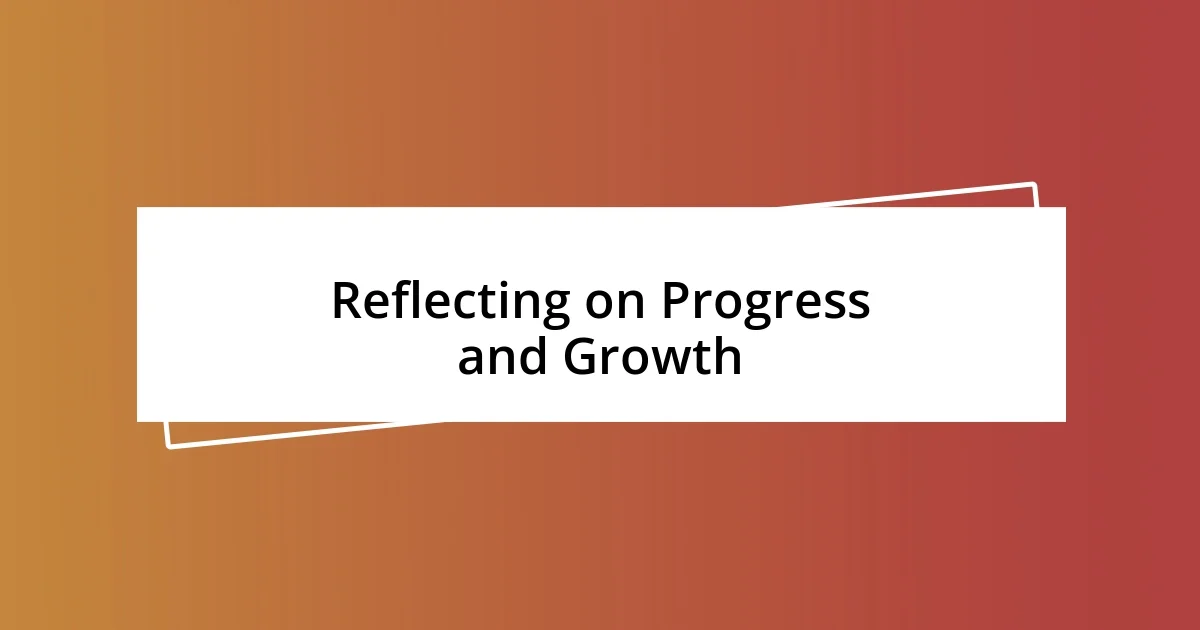Key takeaways:
- Gratitude enhances team dynamics by promoting sportsmanship, mutual respect, and camaraderie, leading to improved performance and mental well-being.
- Incorporating daily gratitude exercises, such as thankful journaling and team appreciation circles, fosters a positive atmosphere and strengthens bonds among teammates.
- Reflecting on progress and sharing experiences can transform setbacks into learning opportunities, creating a supportive environment for personal and collective growth.

Understand Gratitude in Sports
Gratitude in sports goes beyond mere thankfulness; it fosters a deep appreciation for the journey, teammates, and the lessons learned along the way. I remember vividly the moments after a tough loss when my coach would gather us to reflect on our efforts. Those discussions not only highlighted what we could improve but also opened our eyes to the resilience and camaraderie we developed together—how often do we take a moment to acknowledge that growth?
In my experience, expressing gratitude can transform the way we perceive both victories and setbacks. I recall one particular game where we came from behind to win. The joy was palpable, yet it was the heartfelt acknowledgment of our opposing team’s effort that resonated with me. This small act of appreciation helped to cultivate sportsmanship and mutual respect—a reminder that every player is part of this larger narrative we call sports.
Have you ever thought about how gratitude can enhance performance? I’ve found that when I focus on what I’m thankful for, whether it’s the opportunity to compete or the support from my teammates, it shifts my mindset. This shift not only boosts my morale but also creates a more positive atmosphere, which can be contagious for the whole team. Gratitude can, quite simply, change the game.

Benefits of Practicing Gratitude
Practicing gratitude in sports promotes mental well-being, which I have noticed firsthand. During a particularly grueling season, I took extra moments to express thanks for my teammates. This practice not only strengthened our bond but also significantly lifted my spirits, making those intense training sessions feel a bit lighter. I came to realize that gratitude isn’t just a fleeting emotion; it’s a powerful tool that transforms the team’s energy.
The benefits of gratitude can manifest in numerous ways:
- Enhanced Team Cohesion: Recognizing each other’s efforts fosters a sense of belonging.
- Improved Performance: A grateful mindset can lead to increased focus and resilience during competitions.
- Reduced Stress: Shifting my focus to what I appreciate helps alleviate pressure and anxiety.
- Greater Enjoyment: I find that celebrating small victories enhances the joy of playing, creating lasting memories.
- Increased Sportsmanship: Acknowledging opponents’ talents encourages mutual respect and integrity in the game.
When I reflect on these aspects, it becomes clear that gratitude is not just beneficial; it’s essential for a fulfilling sports experience.

Daily Gratitude Exercises for Athletes
Daily gratitude exercises can truly be a game-changer for athletes, and I’ve found that incorporating simple practices into my daily routine makes a significant difference. One exercise I cherish is the “Thankful Journaling” technique. Each evening, I jot down three things I’m grateful for that happened during my training or competition. It’s incredible how this practice not only boosts my mood but also helps me reflect on my progress and the support surrounding me. I often find myself smiling as I recall the little victories—like a perfect routine or a teammate’s encouraging words.
Another effective exercise is sharing gratitude with teammates before or after practice. I remember a time when our coach encouraged us to go around in a circle, expressing appreciation for something we noticed one another doing well. It felt like a warm wave washing over the group, creating a strong sense of unity. This simple act not only fostered camaraderie but also motivated everyone to elevate their performance with the understanding that our efforts were recognized and valued.
Lastly, visualization of gratitude has become a personal ritual for me. Before competitions, I take a moment to visualize not just my performance but all the people and experiences that have shaped my journey. This powerful mental exercise grounds me in gratitude and calms any pre-competition nerves. When I focus on the joy of the sport and the gratitude I feel for my teammates, it pushes me to perform at my best.
| Daily Gratitude Exercise | Purpose |
|---|---|
| Thankful Journaling | Reflects on positive moments, boosts mood |
| Team Appreciation Circle | Enhances team cohesion and motivation |
| Visualization of Gratitude | Calms nerves, grounds focus before competition |

Incorporating Gratitude into Training
Incorporating gratitude into training is something I’ve found profoundly enriching. For example, during my cross-country runs, I began to consciously acknowledge the beauty around me—the sound of my feet hitting the ground, the chirping of birds, and the feeling of fresh air filling my lungs. This simple shift in focus not only made each session more enjoyable but also instilled a deeper appreciation for the journey of self-improvement.
I’ve also started sharing gratitude with my coach, which created a more supportive environment. One day, after an especially challenging practice, I thanked my coach for pushing us beyond our limits. He paused, looked around at the team, and shared how much he appreciated our hard work. It reminded me that gratitude isn’t just a solo endeavor; it can enhance team dynamics and morale significantly.
Additionally, I find that creating rituals around gratitude at the start of our sessions helps set a positive tone. Before practices, I suggest we all take a moment to think of one person or moment we’re grateful for that day. It’s astonishing how this practice transforms our energy, turning what could be a routine workout into an uplifting experience. Have you ever noticed how gratitude can shift the atmosphere? When we acknowledge our collective efforts and support, even the toughest training feels a little lighter.

Gratitude Practices for Team Dynamics
Fostering gratitude among teammates can yield impressive results in team dynamics. I recall a moment when our team decided to implement a “Gratitude Board.” Each week, we’d write notes of appreciation for our teammates and post them on this board. The energy in the room shifted dramatically—everyone felt recognized and valued. It was a simple idea, yet it transformed our interactions, enhancing trust and collaboration.
Another practice I fondly remember is our “highs and lows” sharing sessions after competitions. As we gathered, we took turns expressing both our grateful moments and those we found challenging. It created a safe space for vulnerability and support, reminding us that we’re all on this journey together. Reflecting on our experiences with gratitude not only strengthened our bond but also helped us learn from each other. Isn’t it fascinating how sharing both triumphs and struggles can build a deeper team connection?
Additionally, I’ve found that celebrating each other’s milestones, big or small, can be a powerful way to practice gratitude. During a particularly tough training season, we recognized individual improvements after each practice. I’ll never forget seeing a teammate’s face light up when we applauded her for overcoming a personal hurdle. These moments cultivated a culture of appreciation, reminding us that every effort matters. How can simple celebrations transform our perception of progress and unity? In my experience, they redefine it entirely, driving us toward collective success.

Sharing Gratitude with Coaches
My relationship with my coaches has always been a significant part of my athletic journey, and expressing gratitude to them has deepened that connection. Recently, I took a moment after practice to send a quick message to my coach, highlighting how his advice helped me tackle my mental blocks during a race. I saw the joy in his response, a smile radiating through the screen, reminding me that acknowledging their effort not only boosts morale but also fosters a bond built on mutual respect. Have you ever realized how such small gestures can forge stronger relationships?
During our team meetings, I often make it a point to voice my appreciation for our coach’s persistence in creating tailored training sessions that challenge us. I remember a particularly grueling week when he stayed late to help me with my sprints. Afterward, I made sure to thank him, noting how his dedication inspired me to push further. This genuine exchange of gratitude not only highlights our coaches’ hard work but also motivates them to keep investing in our success.
I’ve also encouraged my teammates to join me in expressing our thanks. We started dedicating a portion of our end-of-season gathering to share personal stories of how our coaches impacted our lives. It’s incredible how recounting these moments generates a wave of gratitude that envelops the room. Have you considered how reflecting on impactful experiences can change our outlook? For me, it illuminated the vital role coaches play not only in our athletic achievements but in shaping our character off the field as well.

Reflecting on Progress and Growth
Reflecting on progress and growth in sports can be a deeply rewarding experience. I remember a season where I struggled with my performance, feeling frustrated after each match. One afternoon, I took a quiet moment to sift through my training journal. As I read past entries, I was surprised to see the incremental improvements I had overlooked. That simple act of reflection turned my frustration into gratitude, allowing me to appreciate the journey rather than solely focusing on the results.
Looking back at my athletic journey, I often realize how every setback has been a catalyst for growth. During one particular competition, I tripped and fell just seconds into my race. Initially, I was devastated, but after a few days of processing my feelings, I began to reflect on what I learned from that experience. I grew more resilient and learned to channel my fears into motivation for the next event. Have you ever felt that something perceived as a failure helped you grow in unexpected ways? For me, embracing those lessons transformed my self-perception, allowing me to view challenges as essential stepping stones rather than roadblocks.
It’s fascinating how sharing our reflections with teammates can amplify our growth. I distinctly remember sitting in a post-season gathering where we spent time discussing our respective journeys. Each story revealed struggles and triumphs that resonated on a personal level. I felt a wave of gratitude wash over me, realizing how our experiences intertwined. How often do we take the time to celebrate not just our victories but also our growth as individuals? This shared vulnerability can deepen our connections and create an environment ripe for ongoing improvement. In essence, reflecting on our progress together nurtures a supportive atmosphere that fuels further growth.














